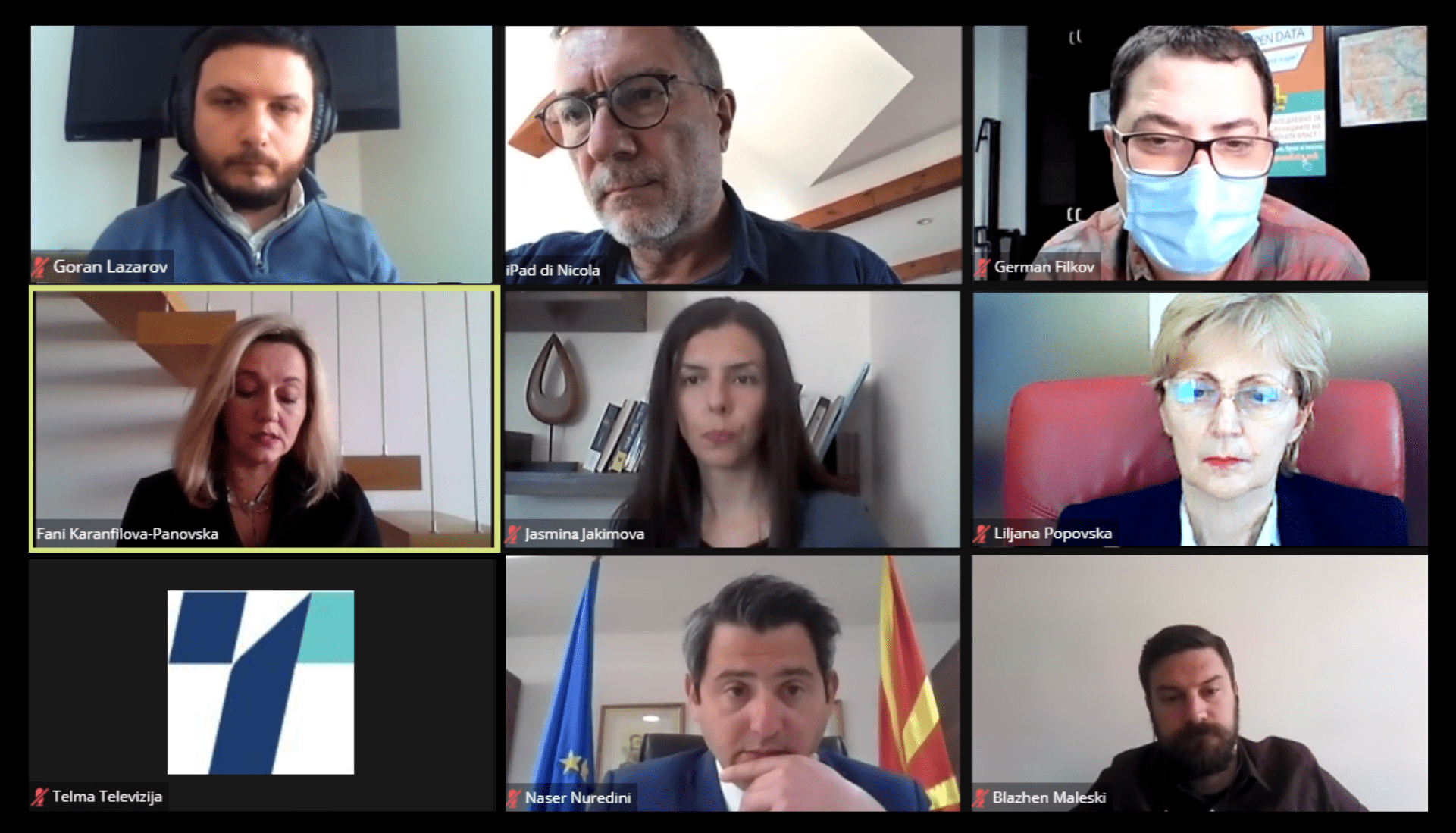Today, 2 March 2021, the project ”CSO Dialogue – Platform for Structural Participation in EU Integrations” organized the sector consultations around “Effects from Work of SWG Environment and Climate Action and Future Challenges for Improving Cooperation between Civil Society Organizations and Institutions”.
Executive Director of the Foundation Open Society – Macedonia, Fani Karanfilova-Panovska, stressed that implementation of well-designed, effective and efficient climate action can no longer be postponed. She underlined that climate action is among the three priorities of the Open Society Foundations in the region, adding that strategic priorities known as the three Cs, in addition to climate, also include Covid-19 and corruption. According to Karanfilova-Panovska, mitigating consequences from climate change and demand for systemic transformations should offer new economic possibilities that will be equitably and fairly distributed and will not leave vulnerable categories of citizens behind. As regards Chapter 27: Environment and Climate Change, she said it is a matter of the most voluminous chapter that most definitely necessitates vast finances and investments, which additionally confirms the importance fir involvement of all stakeholders in policy-making on such important topics. Finally, in respect to the performance of SWG Environment and Climate Action, she indicated that in spite of the fact that this sector group was formed in 2015, it has not adopted own rules of procedure or decision on operation. At the same, in the capacity of formal mechanism for cooperation between civil society organizations and institutions, this sector group needs to develop its annual work plan that will anticipate dynamics and expectations from its performance.
Blazhen Maleski, researcher at Reactor – Research in Action, presented key findings from the last report on performance of the Sector Working Group on Environment and Climate Action. In that, he referred to problems related to this sector group’s transparency, lack of own rules of procedure and work decision. At the same time, he noted that although this sector working group should guarantee civil society participation and despite the strong interest for its work, it still remains one of the more closed working groups. He added that the Ministry of Environment and Spatial Planning perceived this group as additional burden instead of important resource for policy making. Hence, Maleski recommended that civil society participation in this sector working group to be clearly defined, transparent and proactive, and for work to be generally focused on advancing transparency of this sector group.
Minister of Environment and Spatial Planning, Naser Nuredini, underlined that this ministry has an open-door policy and regularly organizes meetings with civil society organizations in respect to policy creation. Nuredini said there is clear awareness about climate change being the biggest threat to humanity, with known implications on people’s livelihood. He added that, considering the Covid-19 crisis, this period is not the best time for activities in this field because there is no vaccine for climate change. However, the government actively works on setting climate action goals that will be aimed at reducing greenhouse gas emissions and that work under this process implies cooperation with the Macedonian Academy of Arts and Science.
Head of Cooperation at the EU Delegation, Nicola Bertolini, indicated that environment protection is not a priority of state institutions, and that necessary resources – both financial and human – are not invested in this area, which, in his opinion, is because politicians work only on request from citizens. If in the past we had the Colourful Revolution, now there is a need for Environment Revolution, whereby civil society organizations should mobilize citizens to make environment protection top priority. As regards performance of SWG Environment and Climate Action, Bertolini stressed that this sector group should mature and transform from its current perception as working group for programming IPA projects into body that is steered towards creation of environment policies and actions and that listens to the voice of civil society.
In its composition, SWG Environment and Climate Action covers a broad scope of institutions competent for policy-making related to this topic. Ministry of Environment and Spatial Planning is responsible for its operation, while the relevant minister serves as sector group’s chairperson. The sector group’s composition includes representatives from state institutions holding competences in this area, donor community and civil society, In particular, this group has six (6) members from civil society organizations, but due to lack of formal acts for its operation, their status is not regulated.
The event was attended by more than eighty representatives from civil society organizations, state institutions, members of sector groups, and the media.
This conference is organized as part of the project “CSO Dialogue – Platform for Structural Participation in EU Integrations”, coordinated and implemented by the Foundation Open Society – Macedonia, in partnership with Reactor – Research in Action, Eurothink – Center for European Strategies and Center for Civil Communications.
A video recording of the event is available on this link.
The full report on SWG Environment and Climate Action is available for download on this link.
